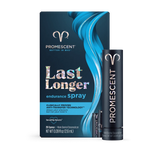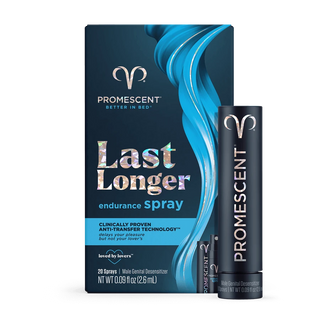Alcohol might make you last a little longer, but this comes with a warning because too much can cause other problems like ED.

reviews


reviews

According to the CDC, excessive alcohol use can interfere with testicular function and male hormone production resulting in impotence, infertility, and reduction of male secondary sex characteristics such as facial and chest hair.
Alcohol acts as a depressant in the nervous system but also affects your decision-making skills. This is why you may feel more relaxed and more willing to take risks. Overconsumption of alcohol can affect performance by constricting blood vessels in the body.
Alcohol acts as a depressant in the nervous system.
A little might make you feel some effects like lightheadedness; a lot might make you fall down or slur your speech.
While a couple of drinks have been seen to increase one’s libido (lessening anxiety and relaxing the mind), chronic use or even a night of overindulgence can lead to problems with performance, including premature ejaculation.
In excess, alcohol also can affect performance by constricting blood vessels in the body, including the penis.
This isn’t to say that one or two drinks will cause PE problems, but when one or two leads to too much, then there can be issues.
Studies all over the world (including this 2018 study published in the Journal of Sexual Medicine) have found direct correlation between chronic alcohol use and sexual performance experiences, which in turn lead to increased distress, depression, and alcohol abuse.
“Chronic heavy drinking can cause liver damage, nerve damage, and other conditions — such as interfering with the normal balance of male sex hormone levels — that can lead to [erectile dysfunction],” says Ira Sharlip, MD, a urology professor at the University of California San Francisco School of Medicine.
The Centers for Disease Control (CDC) has written that excessive alcohol consumption can lead to many physical ailments in the body that can affect sexual performance as well as overall health.
They define “excessive” alcohol consumption as either binge drinking (more than 5 drinks per sitting for men) or heavy drinking (more than 15 drinks per week for men).
“Excessive alcohol use can interfere with testicular function and male hormone production resulting in impotence, infertility, and reduction of male secondary sex characteristics such as facial and chest hair,” according to the CDC.
Long-term health problems caused by excessive alcohol consumption include everything from high blood pressure to depression and different types of cancers, according to the CDC.
Rather than risk booze-related performance issues, try a few techniques before or during sex, especially if you’re a little nervous.
Be open and honest. A little icebreaker about your shared nervousness might be the perfect thing to soothe over any tension in the moment.
Dr Laurence Levine is a Professor of Urology and practices at Rush University Medical Center in Chicago. He is focused specifically on Male Sexual Health and is past President of the Sexual Medicine Society of North America (SMSNA). Dr. Levine graduated from the University of Colorado School of Medicine where he received his MD and completed his training in Urology at the Harvard Program in Boston.
Absorption Pharmaceuticals LLC (Promescent) has strict informational citing guidelines and relies on peer-reviewed studies, academic or research institutions, medical associations, and medical experts. We attempt to use primary sources and refrain from using tertiary references and only citing trustworthy sources. Each article is reviewed, written, and updated by Medical Professionals or authoritative Experts in a specific, related field of practice. You can find out more about how we ensure our content is accurate and current by reading our editorial policy.
Center for Disease Control Staff. 2020 October 23. Excessive Alcohol Use is a Risk to Men's Health Center for Disease Control and Prevention. https://www.cdc.gov/alcohol/fact-sheets/mens-health.htm. Accessed 26 Jan 2022.
David Freeman, David T. Derrer, MD. 2013 October 18. Protect Your Erection: 11 Tips. Web MD. https://www.webmd.com/erectile-dysfunction/features/protect-your-erection-11-tips#1. Accessed 26 Jan 2022.
Mark S Allen, Emma E Walter. 2018 April. Health-Related Lifestyle Factors and Sexual Dysfunction: A Meta-Analysis of Population-Based Research. National Library of Medicine. https://pubmed.ncbi.nlm.nih.gov/29523476/. Accessed 26 Jan 2022.
Julia Michelle. (n.d). Can Alcohol Cause Erectile Dysfunction?. Livestrong. https://www.livestrong.com/article/28126-can-alcohol-cause-erectile-dysfunction/. Accessed 26 Jan 2022.
Alexandra Sims. 2015 October 30. Beer ‘Can Make You Better in Bed’, Scientists Say. Independent. https://www.independent.co.uk/life-style/love-sex/beer-can-make-you-better-in-bed-scientists-say-a6714586.html. Accessed 26 Jan 2022.

reviews
Your Cart Is Empty